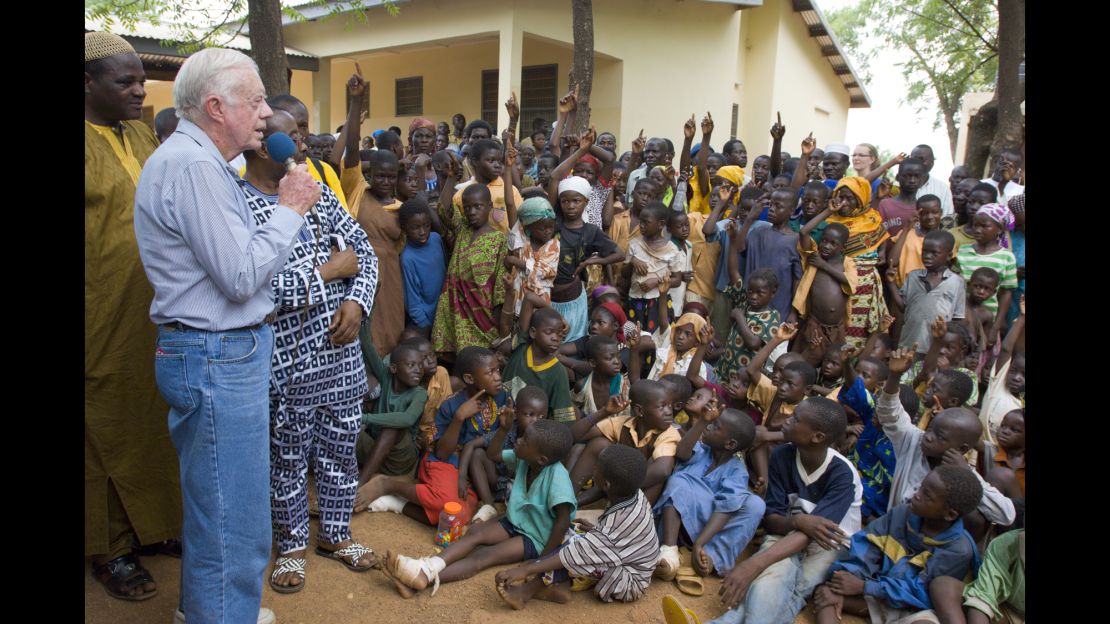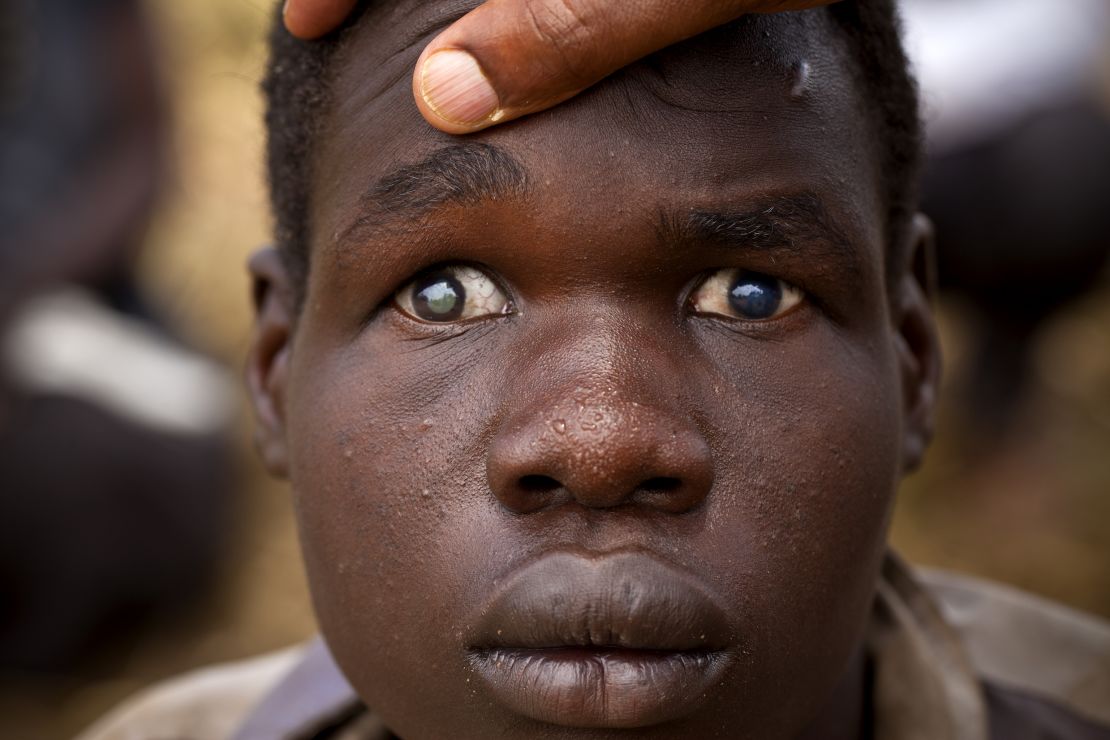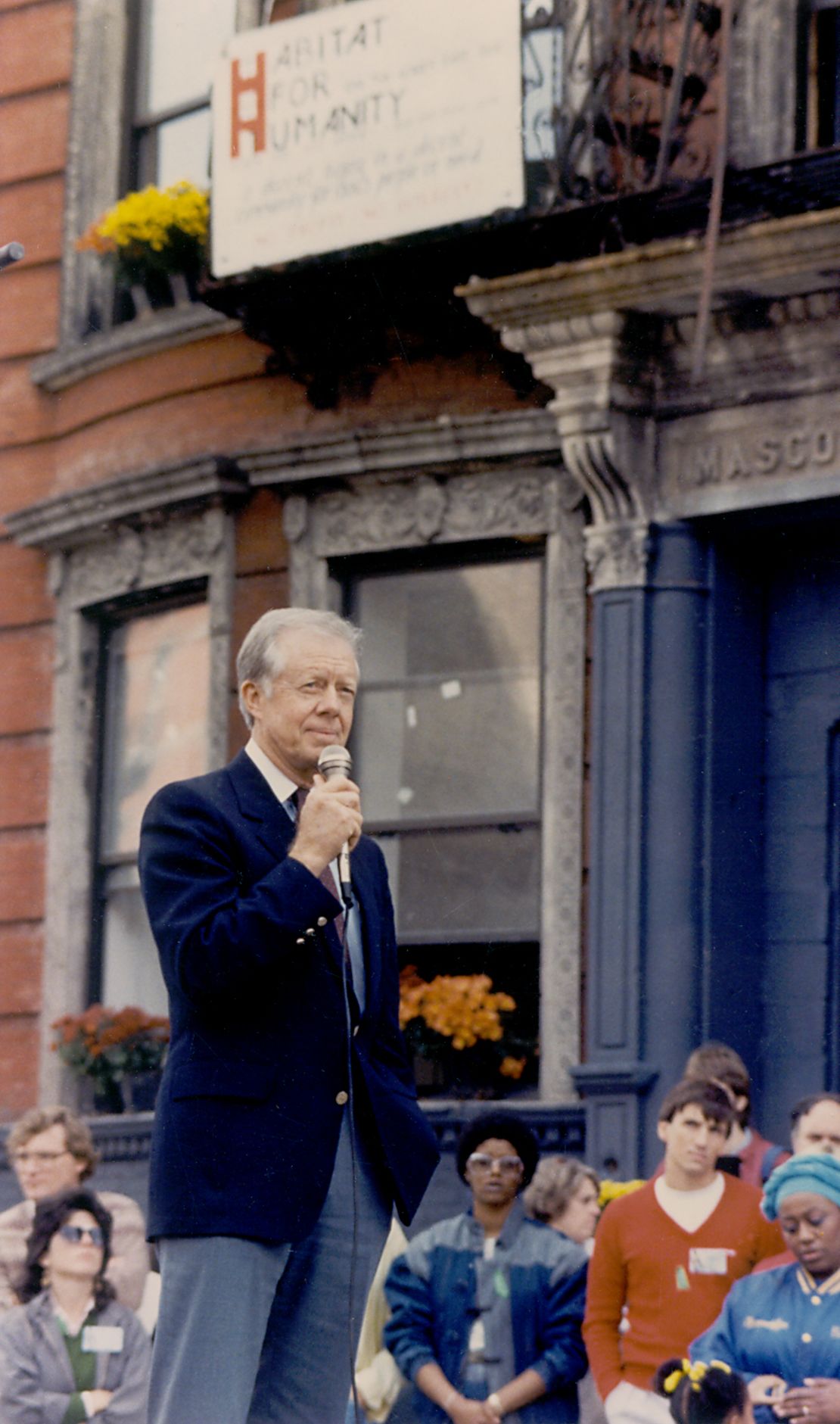CNN
—
Jimmy Carter redefined what a post-presidency could be after he lost re-election in 1980. From the Carolina Lowcountry to the Ethiopian highlands, Carter’s humanitarian work eventually eclipsed his White House accomplishments and continues to enrich the world today.
In 1982, the former president and his wife Rosalynn founded the Carter Center, committed to human rights and alleviating suffering around the world. The Carter Center quickly became a force for peace. It strengthened democracies by observing more than 100 elections across 39 countries. It also gained renown for groundbreaking work tackling neglected tropical diseases and providing health education.
From leading the charge at the Carter Center to building Habitat for Humanity homes, Impact Your World featured President Carter three times. Each story showcased an endeavor that, alone, could be a lifetime’s worth of good works. Jimmy Carter’s commitment to all three is a testament to just how much a difference one person can make.
As the world mourns the president’s passing and celebrates his life, CNN’s ‘Impact Your World’ looks back at his humanitarian causes and the ways you can carry on his legacy.

Quest to wipe out the ‘fiery serpent’
Carter made it a mission to eradicate Guinea worm, a parasite that has plagued society since ancient times. The worms have been pulled from Egyptian mummies and are believed to be the “fiery serpents” described in the Bible. The brutal disease involves larva ingested from stagnant drinking water eventually bursting through victims’ skin.
There was an audacity to President Carter’s plan to eliminate the pest.
<div data-uri="cms.cnn.com/_components/video-resource/instances/clpis9iyy000c3b6j5t4urjd1@published" data-component-name="video-resource" data-editable="settings" class="video-resource" data-fixed-ratio="16×9" data-parent-uri="cms.cnn.com/_components/video-resource/instances/h_0553ea54eeb995969757993ce87edd52@published" data-video-id="world/2023/03/03/exp-jimmy-carter-guinea-worm-legacy-030312pseg1-cnni-world.cnn" data-media-id="me21ec895c90a72e6efc168db6da1173613cd97686" data-live="" data-analytics-aggregate-events="true" data-custom-experience="" data-asset-type="hlsTs" data-auth-type="none" data-content-type="mediasource-clip" data-medium-env="prod" data-autostart="unmuted" data-show-ads="true" data-source="CNN" data-featured-video="true" data-headline="Tropical diseases were a major concern of the former president." data-has-video-player="true" data-description="CNN's Zain Asher speaks to Adam Weiss of the Carter Center on Pres. Carter's dedication to eradicating tropical diseases" data-duration="07:19" data-source-html='<span class="video-resource__source"> – Source:
<a href="https://www.cnn.com/" class="video-resource__source-url">CNN</a>
</span>' data-fave-thumbnails='{"big": { "uri": "https://media.cnn.com/api/v1/images/stellar/prod/230303135426-exp-jimmy-carter-guinea-worm-legacy-030312pseg1-cnni-world-00004229.png?c=16×9&q=h_540,w_960,c_fill" }, "small": { "uri": "https://media.cnn.com/api/v1/images/stellar/prod/230303135426-exp-jimmy-carter-guinea-worm-legacy-030312pseg1-cnni-world-00004229.png?c=16×9&q=h_540,w_960,c_fill" } }' data-vr-video="false" data-show-html="” data-byline-html='<div data-uri=”cms.cnn.com/_components/byline/instances/byline_h_0553ea54eeb995969757993ce87edd52-video-resource@published” data-component-name=”byline” class=”byline” data-editable=”settings” >
</div>’ data-timestamp-html=”” data-check-event-based-preview=”” data-is-vertical-video-embed=”false” data-network-id=”” data-publish-date=”2023-03-03T19:02:58Z” data-video-section=”world” data-canonical-url=”https://www.cnn.com/videos/world/2023/03/03/exp-jimmy-carter-guinea-worm-legacy-030312pseg1-cnni-world.cnn” data-branding-key=”” data-video-slug=”exp-jimmy-carter-guinea-worm-legacy-030312pseg1-cnni-world” data-first-publish-slug=”exp-jimmy-carter-guinea-worm-legacy-030312pseg1-cnni-world” data-video-tags=”africa,brand safety-nsf health issues,brand safety-nsf sensitive,continents and regions,diseases and disorders,domestic alerts,domestic-health and science,guinea,health and medical,iab-diseases and conditions,iab-infectious diseases,iab-medical health,infectious diseases,international alerts,international-health and science,jimmy carter,medical fields and specialties,misc people,political figures – us,tropical medicine,western africa,zain asher” data-details=””>

So far, science has only wiped out one human disease worldwide – smallpox, eradicated with a vaccine. And there is no such silver bullet for Guinea worm.
But there is the Carter Center’s massive campaign, determined to change the behavior of people across 20 countries and distribute millions of water filters.
When the program started in 1986, Guinea worm disease infected 3.5 million people. By 2022, only 13 cases were reported worldwide.
“I would like the Guinea worm to die before I do,” Carter said in 2015.
You can support his dream to cure the world of Guinea worm disease here: The Carter Center Guinea Worm Eradication Program.

Fighting river blindness
Impact Your World’s second interview with Jimmy Carter focused on another health initiative.
River blindness is a parasitic infection spread by black flies in Africa, Latin America and Yemen. About 20 million people suffer from the disease which causes skin discoloration, rashes and can lead to blindness.
The Carter Center helped tackle river blindness with health education and more than 500 million doses of Mectizan, a medicine that kills larvae inside the human body.
“By giving you the two to four doses a year, we could actually get rid of a disease from a particular community,” Carter explained.
Together with the respective ministries of health, the Carter Center has eliminated river blindness transmission from Colombia, Ecuador, Mexico and Guatemala.
The center continues to work in Brazil, Ethiopia, Nigeria, Sudan, Uganda, and Venezuela.
“To go back later and to see the disease is gone, and that the people have a totally transformed life, those are some great dividends to be derived from a small investment,” Carter said.
Go here to help the Carter Center’s River Blindness Elimination Program.

Building homes for the needy
Our final Impact Your World interview with Jimmy Carter was in 2016, on the construction site of a Habitat for Humanity home in Memphis, Tennessee.
Jimmy and Rosalynn Carter first volunteered with Habitat for Humanity in 1984. The Carter Work Project soon became an annual event led by the former first couple for more than 35 years.
“This has been the main thing we do outside of Carter Center and outside of my political jobs,” the then-91-year-old said during a momentary break from swinging his hammer.
The volunteers on location said it was hard to keep pace with the former president.
President Carter’s humanitarian legacy
And the difference he made is awe-inspiring. According to Habitat for Humanity, Jimmy and Rosalynn Carter have worked with 104,000 volunteers in 14 countries to build, renovate and repair 4,390 homes.
You can find ways to support and volunteer with Habitat for Humanity here: Carter Work Project.







